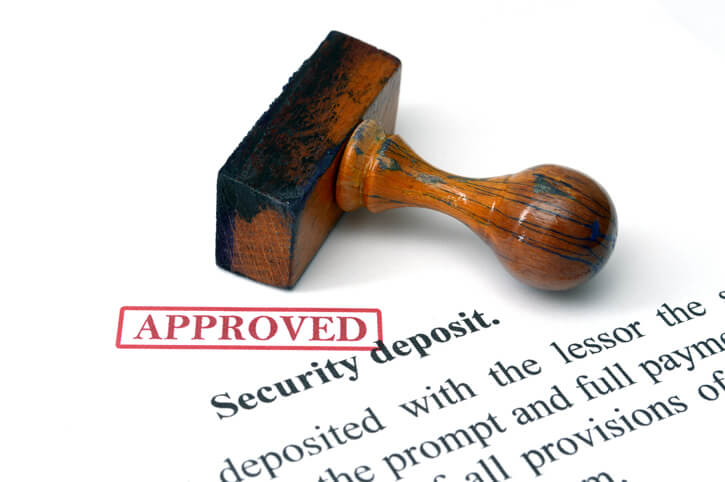Two years, two months, and 15 days. That’s how long it took me to get my two months’ security deposit back from my former landlord, a wealthy restaurateur who illegally withheld the funds.
The process, while not rocket science, required patience, diligence and hours of legwork that took me on an educational journey through the small claims court system. Along the way, some bureaucrats discouraged me, while others cut red tape. But upon finally receiving our long-lost money in the mail recently, the experience offered a guide for the countless others who’ve suffered landlords stealing their money but weren’t sure how to fight back.
“New Yorkers shouldn’t have to worry that their landlord will illegally withhold money that belongs to them,” New York Attorney General Letitia James said in January upon recovering more than $422,000 for about 900 tenants whose security deposits were illegally withheld by Fairfield Properties, one of the largest residential property owners on Long Island.
Landlord-tenant disputes — which often involve security deposits — are consistently among the top consumer complaints that the attorney general’s office hears, although James is not the only avenue that renters can pursue to get their money back.
Just in time for National Consumer Protection Week, what follows is a beginners’ guide for renters trying to get their security deposit back.
SECURITY DEPOSITS 101
When renting a residence, landlords require a security deposit to cover expenses such as unpaid rent or repairs to damage the property upon tenants moving out — and when that time comes, tenants have a right to get that money back.
State law mandates that landlords must allow tenants to be present when the property is inspected for damage. Landlords must also provide tenants with an itemized list of damages complete with estimated repair costs to give tenants an opportunity to make repairs themselves to ensure they get their entire security deposit back without having those repair costs deducted. And if a landlord fails to do so within 14 days of a tenant moving out, the landlord is then required by law to pay the tenant the entire security deposit — and landlords that egregiously ignore this mandate can be required to pay tenants twice the sum of the original security deposit.
“New York law also requires landlords to give tenants written notice of their right to be present when the apartment is inspected,” the attorney general’s office states, as many renters are unaware of their rights under the law.
In our case, my wife and I read the state’s Residential Tenant’s Rights Guide, which I cited in conversations with my former landlord when trying to get him to give us our security deposit back. While our security deposit was two months’ rent, after we moved in the state passed a law capping security deposits to no more than one month’s rent. So when we moved out, we asked our landlord to take the one-month penalty for breaking the lease out of our deposit since there was more than enough to cover any potential damages found.
Before our landlord had begun performing extensive demolition on the storefront below our apartment, he had offered us a chance to break lease without penalty. But that offer was later withdrawn and when the situation became untenable, we had no choice but to find another place to live.
“Unfortunately, months of unpredictably timed heavy construction making it difficult to telecommute without distraction, frequent disruptive fire alarms, and workers slated to come into our apartment to replace windows during the winter amid a spike in coronavirus cases while my wife is pregnant, we feel it is best for our health and safety to move out,” I wrote in our two-week’s notice.
Our landlord, however, insisted we pay the penalty up front, which we refused to do since we had a sneaking suspicion that he intended to stiff us on the entire deposit after we moved out — a suspicion that proved correct. While he did allow me to be present for the inspection, we were neither provided a list of itemized deductions nor an opportunity to make repairs. When the two-week deadline passed, we alerted him to the violation and never heard back.
It is also worth noting that the state tenant’s rights guide issues a warning to those who continue to require payment of more than one month’s rent as a security deposit.
“A broker that requests advance rent payments/security deposits greater than one’s month rent can be subject to discipline,” it states.
YOU’VE BEEN STIFFED — NOW WHAT?
Besides the inconvenience of not having that security deposit as a cushion to help pay for the costly process of moving to a new residence, it can also prove frustrating to even have to fight for money that is rightfully yours. Many people wash their hands of it and give up, which is what unscrupulous landlords are counting on. But with stick-to-itiveness, that security deposit continues to be money in the bank for you — you just have to be extra diligent for it to be returned to its rightful owner.
For those who refuse to give up, there are essentially three avenues: Hire a lawyer if you can afford one (although that may cost more than the deposit is worth), file a complaint with the State Attorney General’s Bureau of Consumer Frauds and Protection to start the mediation process, or file a claim yourself in small claims court, which is what I did since our security deposit was less than $5,000. If you do this route, you forgo the attorney general’s mediation.
Due to the coronavirus pandemic, the courts were especially backlogged when we filled out the complaint form on the Suffolk County court website, paid the $20 fee needed to secure our docket number assigned to the case by the court clerk, compiled all my paperwork and waited for a court date to arrive in the mail. Because we have jobs and lives to live — we’re not attorneys who get paid to sit around courthouses all day waiting for a judge to call our case — we chose the night court option for when we’d like to have our case heard.
Unlike lawsuits held in other courts, there is no need to hire a process server to ensure the defendant has been made aware of the case. Small claims court summonses in the mail suffice in such cases.
It took more than a year for us to finally have our day in court. Both sides get one adjournment — the court’s term for postponement — before a small claims case is heard. This is important to remember, because after we and the landlord both used our one adjournment, he tried to adjourn the case a second time. I had to remind the court clerk and judge hearing the case that this was the landlord’s second adjournment — the court wasn’t keeping track of this themselves.
Had the landlord shown up, the judge would have required both sides to go out in the hall and try to negotiate a settlement before the case could be heard. Since our landlord blatantly violated the law, we sued for our entire security deposit back — the full two-month’s rent. We were prepared to settle for the one month’s rent that we originally asked for when we moved out. That’s just haggling 101.
But at that point, since our ex-landlord failed to show up in court, the judge heard our case without the defendant present, which is known as an inquest. That, of course, made our case a lot easier to make to the judge. Despite compiling emails, printing out photos of the apartment to dispute claims of damage and bringing a ton of other paperwork as evidence, the judge was only interested in reading our lease. After a brief line of questioning, one tidbit jumped out at her.
“They made you pay an additional $65 security deposit when they raised the rent?” the judge asked.
“It was one of the few things they were thorough about,” I replied.
With that, I was sent on my way and told to wait for the judge’s decision to arrive in the mail in about two weeks. Three days later, it arrived: The judge ruled in our favor, granting the entire two months’ security deposit.
HOW TO MAKE LOSING LANDLORDS PAY
Winning the court case, of course, wasn’t the end of the fight. Actually collecting payment was another process in and of itself, as a small claims court does not enforce judgements.
Having not received payment 30 days after the date of the judgment, I drove back down to the courthouse and requested a certified copy of the judgment for another nominal fee. That document I then took to the Suffolk County Clerk’s office, where the judgment had to be processed before I could then take the records to the Suffolk County Sheriff’s Office.
But before taking judgment to the sheriff, there was another quick stop to make: Checking with the public research room of the clerk’s office to see if my landlord had any additional judgments against him. If he had three others, that would have increased the amount we were owed. In our case, there were no other judgments to be found, so we were only collecting 9% interest on top of the security deposit for as long as he didn’t pay up.
Upon arrival at the civil enforcement section of the sheriff’s office — unlike the long lines at the clerk’s office, I was the only person on line here — there were two options: Request to send a uniformed sheriff’s deputy to show up at my landlord’s place of business and strongly encourage him to pay the amount owed, or request the sheriff enforce what’s known as a bank levy. Armed with my landlord’s bank account number found on the back of previously paid rent checks recorded in my bank’s online ledger, I turned over the certificate of judgment, filled out a form requesting a bank levy, paid another fee and waited some more.
About a month later, we got word from the sheriff that a deputy had served the bank with the levy and it was under review. Because my landlord — like many, if not most landlords — required rent be paid to a business account set up in the name of an LLC, there were less protections in place as opposed to trying to enforce a judgment against a personal checking account. As it turned out, the bank cut the check on the same day that the attorney general announced the Fairfield settlement — but we still weren’t done waiting.
Once the bank’s levy check finally arrived at the sheriff’s office, we had to wait two weeks for it to clear on their end, wait for the sheriff to cut a check, then wait for it to arrive via snail mail and clear our account before it was finally ours again — a process that took another month.
Oddly enough, after the bank levy was already filed with the sheriff and well after the judgment was issued, we got a letter in the mail from an attorney representing our ex-landlord. It was a notice to appear for what’s called a trial de novo — he wanted to retry the case that he failed to show up for. The court clerk advised me that the judge denied the request before the letter even arrived at my house.
It just goes to show that some shady landlords would rather pay attorneys to fight losing battles than pay tenants the security deposits that they are rightfully owed.


























